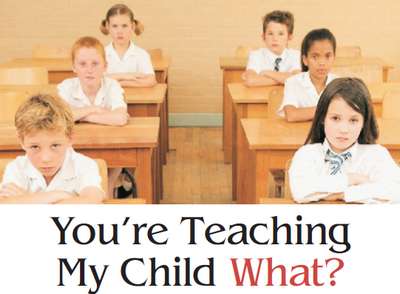Less Sex Ed Actually Has Best Outcomes – UK Study
 Media Release 31 May 2017
Media Release 31 May 2017
Family First NZ is welcoming a UK study which found that teenage pregnancy rates have been reduced because of government cuts to spending on sex education and birth control for young women, and that the state’s efforts to teach adolescents about sex and make access to contraceptives easier may have encouraged risky behaviour rather than curbed it.
The study by Nottingham University Business School and the University of Sheffield said that projects such as the morning-after pill freely available through pharmacies, teenage pregnancy “co-ordinators”, sexual health clinics in schools, and sex and relationship education (SRE) classes may even be counterproductive.
According to the report, the latest UK study adds to a body of evidence that suggests that when the government involves itself in teenagers’ sex lives it often winds up achieving the opposite of what was intended. A study in 2009 looking at a typical Teenage Pregnancy Unit campaign, which included SRE and access to family planning in schools, found that it resulted in significantly higher pregnancy rates. A Cochrane review of SRE published last year found that the measure had “no apparent effect on the number of young women who were pregnant”. Research around the world has consistently shown that increased access to emergency contraception does not result in lower pregnancy rates among adolescents and young adults, but can be associated with an increased incidence of sexual activity and sexually transmitted infections. In 2010, the Auckland District Health Board announced that it would cease funding a free morning-after pill scheme after analysis of their 12 month trial of the programme showed that there was no statistically significant change in the Auckland abortion rate.
“This UK study is a clear rebuke to the current New Zealand government approach of using and funding groups such as Family Planning and Rainbow Youth. The government is currently pursuing and promoting a curriculum where children are given dangerous messages that they’re sexual from birth, that the proper time for sexual activity is when they feel ready, and that they have rights to pleasure, birth control, and abortion, and are indoctrinated on ‘gender identity’ ideology and the harms of gender stereotypes. Parents aren’t sending their children to school to learn about orgasms, arousal and erogenous zones and where to get the morning-after pill. Most schools, along with parents in that school community, are rejecting the extreme elements of the new sexuality education guidelines released at the end of 2015.”
“The most successful programs are those with parental involvement and that show how delaying sexual activity protects a young person from STD’s, teen pregnancy and emotional trauma. They also underline the importance of self-control and responsibility, and the positive impact of delaying sexual activity on their emotional and mental welfare and academic performance.”
“The good news is that rates of sexual involvement have fallen significantly recently for teens – no thanks to groups like Family Planning or Rainbow Youth, but everything to do with education and awareness for teens on the consequences, making better choices, and abstinence,” says Mr McCoskrie.
Family First released a report in 2013 “R18: Sexuality Education in New Zealand – A Critical Review” by US psychiatrist Dr Miriam Grossman which was sent to all school principals and all Board of Trustee Chairpersons of Intermediate and Secondary schools in NZ. Dr Grossman warned that the sex education resources fail to tell the full facts and compromise the concerns and wishes of parents, and the safety of young people. She warned; “A premise of modern sex education is that young people have the right to make their own decisions about sexual activity, and no judging is allowed. Risky behaviours are normalised and even celebrated. Children and adolescents are introduced to sexual activities their parents would prefer they not even know about, let alone practice. It’s reasonable to ask: is the ‘comprehensive sexuality education’ foisted on young people all over the world about sexual health, or sexual licence?”
ENDS






